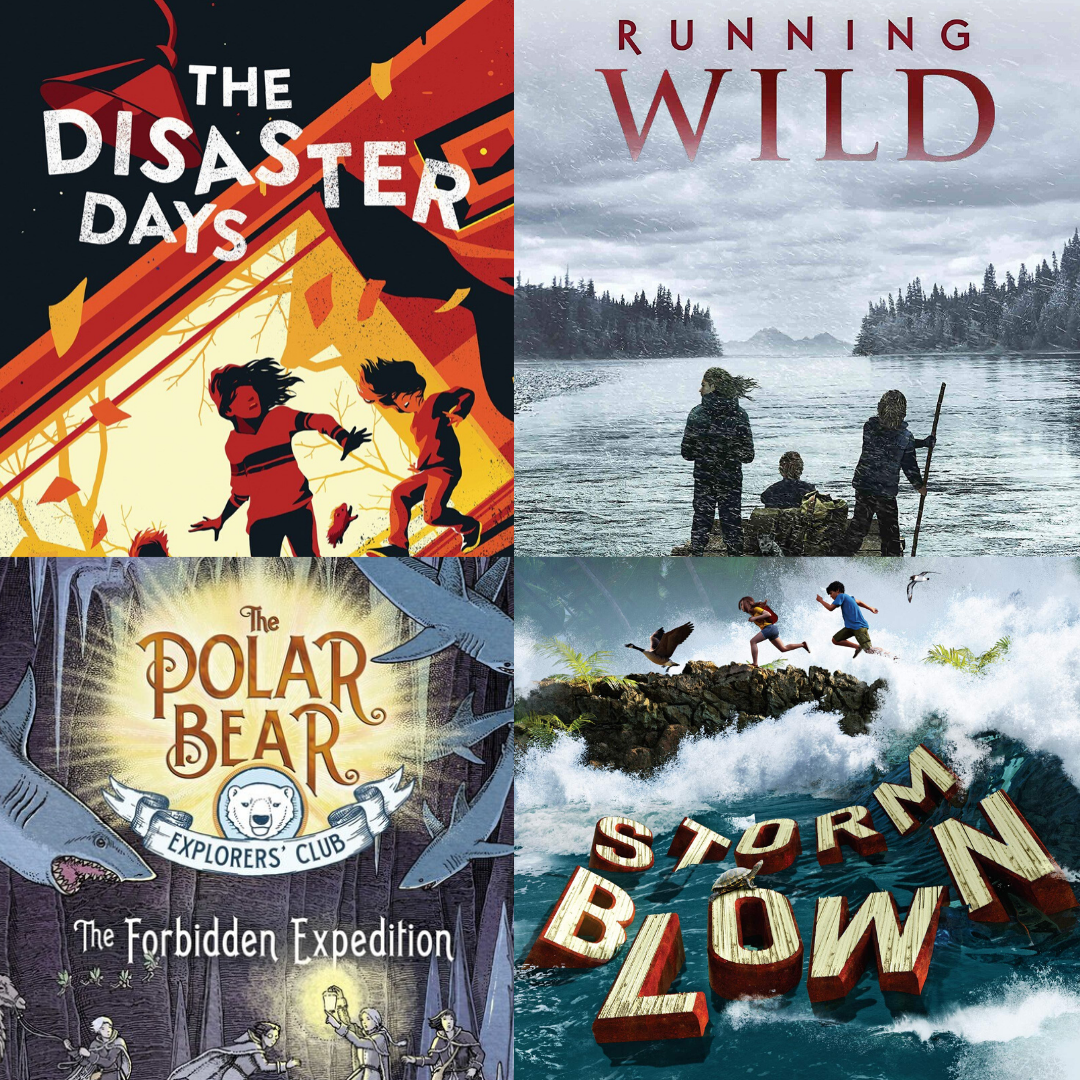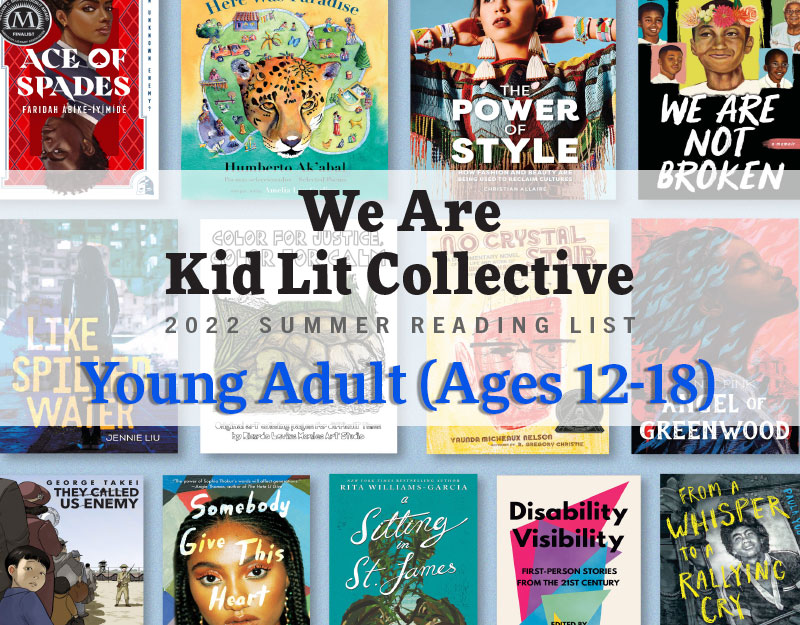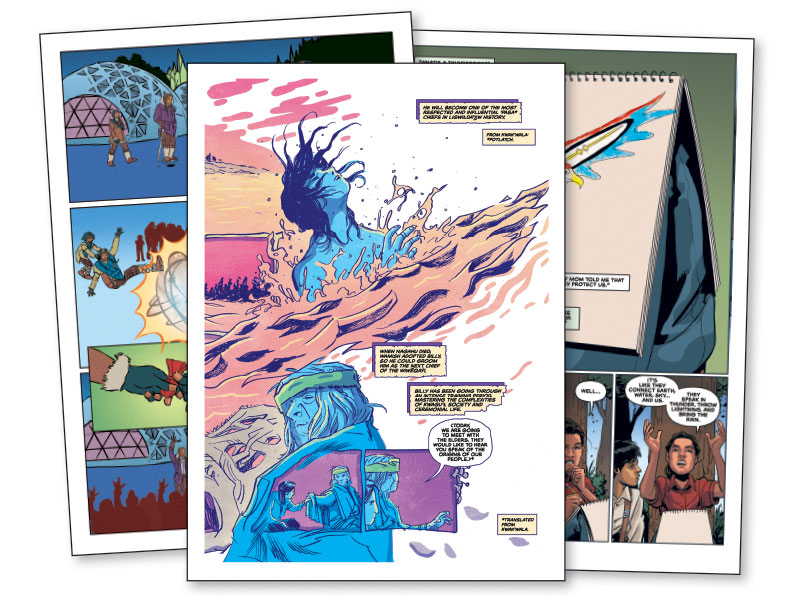Restoring What Slavery Took Away: Ten Take-aways from Kin: Rooted in Hope, a guest post by Carole Boston Weatherford
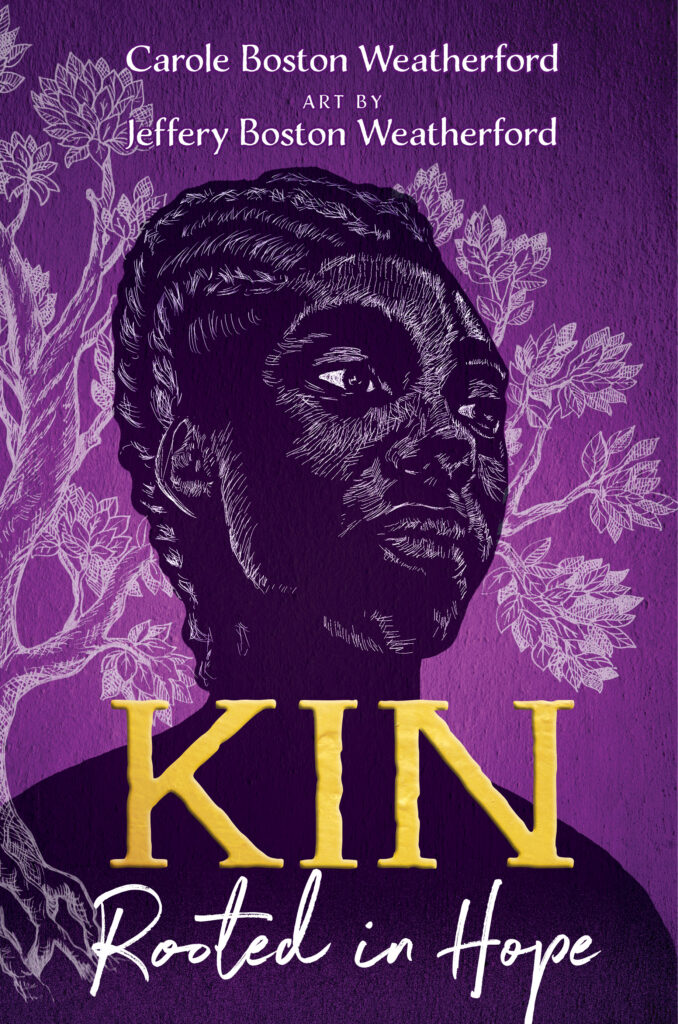
Inspired by Edgar Lee Masters’ Spoon River Anthology, the verse novel, Kin: Rooted in Hope, is the book of my heart. In multi-voiced, first-person poems and dramatic scratchboard illustrations created by my son, Jeffery Boston Weatherford, Kin conjures the voices and stories of our ancestors and their contemporaries on Maryland’s Eastern Shore. Spanning colonial America to the Jim Crow era, Kin is set at Wye House, the state’s largest enslavement plantation, and in all-Black Reconstruction-era villages co-founded by my great-great grandfathers.
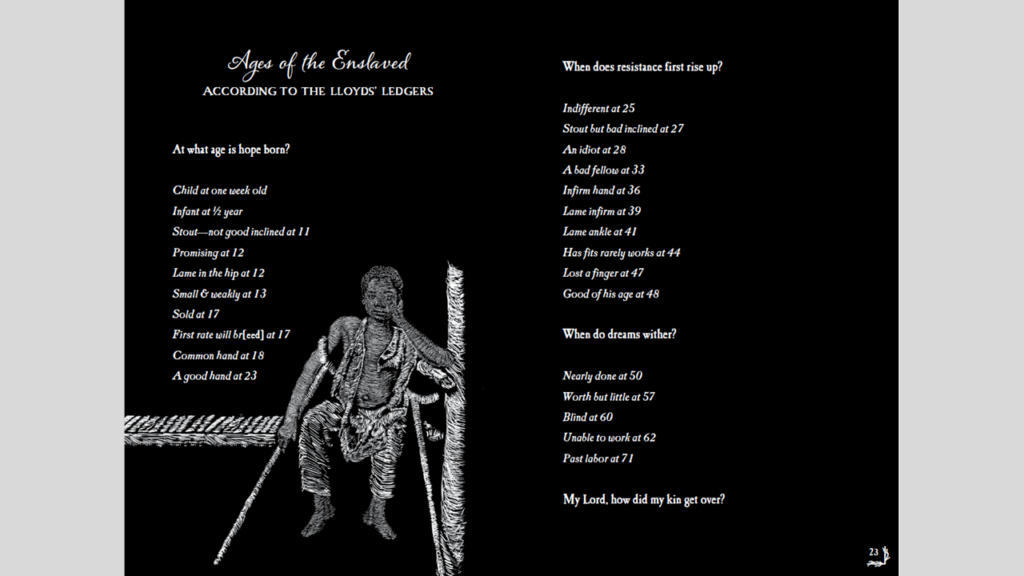
In classrooms, the verse novel can be read straight-through. Or individual poems may be used as mentor texts.
Here are some key takeaways from Kin, some relating what Jeffery and I learned, each introduced by an italicized lyric.
- You pass it down. Knowledge of one’s heritage amounts to generational wealth.
- Once the house servants’ burden, the décor endures. But the faces of my kin have vanished. Erased. As I toured the plantation house, I saw no trace of my ancestors. To remedy this erasure, we created vignettes for dozens of subjects, giving each not only a platform but also a place in history.
- One acorn can grow a tree or seed a forest. Or a family tree. Family stories are treasures. Names and dates form the branches of the family tree. Stories are the leaves that give the tree life.
- Questions remain, but this knowledge is more than I could ask. Kin is as much about the subjects as it is our quest for answers. Jeffery and I did extensive and intensive research. We dug deep for history and experienced some revelations, including an ancestor who knew Frederick Douglass and another ancestor who, according to local lore, descended from African royalty.
- How could I not let the sun in and stories out? For Kin, Jeffery and I pushed past the limits of the archive. We were not constrained by facts that research couldn’t produce or validate. Rather, we took creative license to construct stories around the available evidence.
- The mirrors saw their wholeness, even if enslavement diminished it. Kin depicts enslaved people as complex individuals who exercised agency even under oppression. Mirrors are a recurring motif in Kin. Another poem catches young Nan and Isaac making faces in mirrors.
- Do the math. One hundred seventy-four Black folks could be divided from kin. Family separation was one of the cruelest aspects of enslavement.
- I spit in your soup. Resistance by enslaved people took many forms—not just overt uprisings but also covert acts of defiance and rebellion.
- I saw my kin in a blinding new light. Enslaved African-American ancestors lend lessons in identity, ingenuity, enterprise, improvisation and endurance—traits that teens can lean into. The dramatic scratchboard illustrations in Kin convey the characters’ strength and dignity.
- Can a key unlock my past? At least I have opened the door. Harlem Renaissance bibliophile Arturo Schomburg, whose name graces the Schomburg Center for History and Culture in Harlem, said it best: “History must restore what slavery took away.” Exactly!
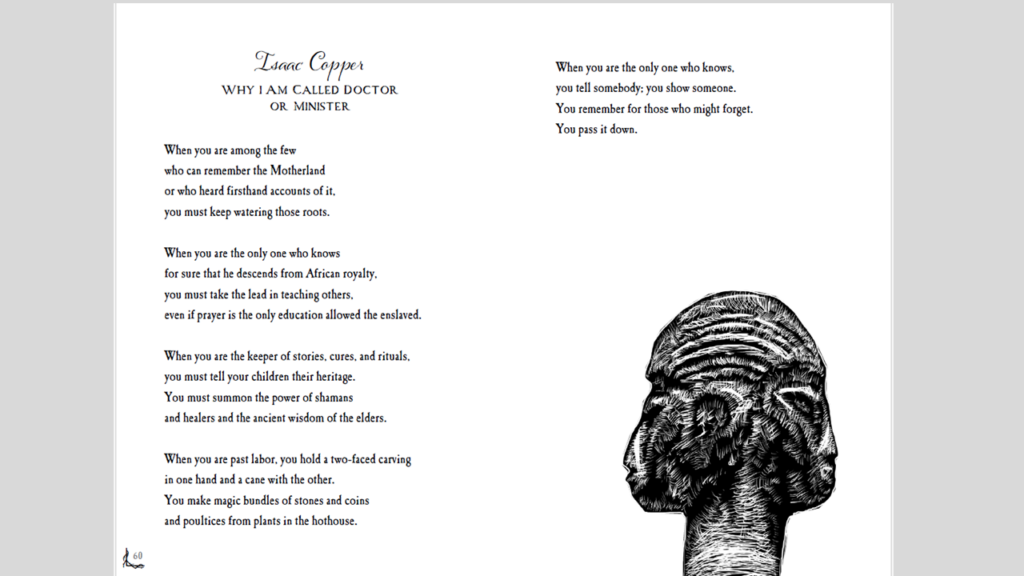
Meet the author

Carole Boston Weatherford (she/her/hers) has written many award-winning books for children, including You Can Fly illustrated by her son Jeffery; Box, which won a Newbery Honor; Unspeakable, which won the Coretta Scott King award, a Caldecott honor, and was a finalist for the National Book Award finalist; Respect: Aretha Franklin, the Queen of Soul, winner of the Coretta Scott King Illustrator Award; and Caldecott Honor winners Freedom in Congo Square; Voice of Freedom: Fannie Lou Hamer, Spirit of the Civil Rights Movement; and Moses: When Harriet Tubman Led Her People to Freedom. Carole lives in North Carolina. Visit her at CBWeatherford.com. You Can Fly illustrated by her son Jeffery; Box, which won a Newbery Honor; Unspeakable, which won the Coretta Scott King award, a Caldecott honor, and was a finalist for the National Book Award finalist; Respect: Aretha Franklin, the Queen of Soul, winner of the Coretta Scott King Illustrator Award; and Caldecott Honor winners Freedom in Congo Square; Voice of Freedom: Fannie Lou Hamer, Spirit of the Civil Rights Movement; and Moses: When Harriet Tubman Led Her People to Freedom. Carole lives in North Carolina. Visit her at CBWeatherford.com.
ADVERTISEMENT
ADVERTISEMENT
About Kin: Rooted in Hope
A powerful portrait of a Black family tree shaped by enslavement and freedom, rendered in searing poems by acclaimed author Carole Boston Weatherford and stunning art by her son Jeffery Boston Weatherford.
I call their names:
Abram Alice Amey Arianna Antiqua
I call their names:
Isaac Jake James Jenny Jim
Every last one, property of the Lloyds,
the state’s preeminent enslavers.
Every last one, with a mind of their own
and a story that ain’t yet been told.
Till now.
Carole and Jeffery Boston Weatherford’s ancestors are among the founders of Maryland. Their family history there extends more than three hundred years, but as with the genealogical searches of many African Americans with roots in slavery, their family tree can only be traced back five generations before going dark. And so from scraps of history, Carole and Jeffery have conjured the voices of their kin, creating an often painful but ultimately empowering story of who their people were in a breathtaking book that is at once deeply personal yet all too universal.
Carole’s poems capture voices ranging from her ancestors to Frederick Douglass to Harriet Tubman to the plantation house and land itself that connects them all, and Jeffery’s evocative illustrations help carry the story from the first mention of a forebear listed as property in a 1781 ledger to he and his mother’s homegoing trip to Africa in 2016. Shaped by loss, erasure, and ultimate reclamation, this is the story of not only Carole and Jeffery’s family, but of countless other Black families in America.
ISBN-13: 9781665913621
Publisher: Atheneum Books for Young Readers
Publication date: 09/19/2023
Age Range: 10 – 18 Years
Filed under: Guest Post
About Amanda MacGregor
Amanda MacGregor works in an elementary library, loves dogs, and can be found on Twitter @CiteSomething.
ADVERTISEMENT
ADVERTISEMENT
SLJ Blog Network
Name That LEGO Book Cover! (#53)
Cover Reveal and Q&A: The One and Only Googoosh with Azadeh Westergaard
Exclusive: Vol. 2 of The Weirn Books Is Coming in October | News
Fighting Public School Book Bans with the Civil Rights Act
ADVERTISEMENT



